College of Fisheries
Know about the College
To provide efficaciously skilled human resource; technical support; and outreach backup to the fisheries sector of the state, College of Fisheries, Guru Angad Dev Veterinary and Animal Sciences University, was established in April, 2008 to produce qualified fisheries professionals; to carry out basic, applied and adaptive research to achieve sustainable aquaculture production/productivity targets; and to disseminate the developed technologies to various stakeholders constituting the fisheries supply chain.
The College of Fisheries has five departments:
- Aquaculture
- Fisheries Resource Management
- Aquatic Environment
- Fish Processing Technology
- Fish Engineering
The college has competent experienced faculty and is well equipped with lab and farm facilities for taking up its teaching, research and extension programs effectually. The college offers the following academic programs:
- B.F.Sc. Degree Program (4 Years)
- M.F.Sc. Degree Program (2 years) – 4 Subjects (Aquaculture, Fisheries Resource Management, Aquatic Environment Management and Fish Processing Technology
- Ph.D. Degree Program (3 Years)– 4 Subjects (Aquaculture, Fisheries Resource Management, Aquatic Environment Management and Fish Processing Technology)
- Short Courses (1 Month) - 6 Areas (Ornamental Fisheries and Aquarium Science, Aquarium Fabrication and Maintenance, Fish Hatchery Management, Aqua Clinics, Fish Processing Technology, Fish Feed Formulation and Manufacturing)
The curriculum of the UG degree programme (B.F.Sc.) has been adopted as per recommendations of the 6th Deans’ Committee of the Indian Council of Agricultural Research (ICAR) w.e.f academic session 2025-26 and is divided into eight semesters. The first 6 semesters include coursework (theory and practical) related to various aspects of fisheries, including taxonomy, anatomy, physiology, biology, biochemistry, culture techniques, nutrition, breeding, disease management, aquatic ecology, aquatic animal health management, genetics, biotechnology, fisheries resource management, aquatic pollution, aquatic biodiversity, post-harvest technology, regulations and policies, marketing and trading, economics, statistical methods, extension education and swimming. During the last/4th year (7th and 8th semester), the B.F.Sc. students undergo ‘Student Ready Program’, including i) In-Plant Training (8-Weeks), ii) Rural Fisheries Work Experience (8-Weeks) and iii) Educational Tour (4-Weels/In & Outside State) during the 7th semester; and i) Experiential Learning Program ii) Skill Development and iii) Project Work & Seminar during the 8th Semester; to enhance the professional competency of the outgoing fishery graduates.
The curriculum of M.F.Sc and Ph.D. is also based on ICAR regulations (BSMA) covering advanced courses and basic/advanced research in the related/relevant subject, with thesis (M.F.Sc.)/dissertation (Ph.D) as an integral part of the degree program.
Tailor-made one-month short courses have also been initiated by the college in industry-oriented fields, to instil entrepreneurial skills among fishery and other aspiring graduates/youth/stakeholders, to promote fisheries as a potential sector for entrepreneurship/career advancement at regional, national and international levels. Fishery professionals i.e., graduates (B.F.Sc.) and postgraduates (M.F.Sc. and Ph.D.) and certificate holders are eligible to seek promising job opportunities in the public/ private sector in India i.e., State Fisheries Department, Fish Farmers Development Agencies (FFDAs), Colleges, Agricultural/Veterinary/Central Universities, Krishi Vigyan Kendra’s (KVKs), Fisheries Institute/Agencies, Banking Sector, Hatcheries, Aquaculture Farms, Feed Mills, Pharmaceuticals, Processing Plants, Trading, Export etc. Further, Fisheries professionals also possess great scope for higher studies and placement overseas. Nevertheless, there are vast opportunities for self-employment/entrepreneurship development in fisheries sector.
Mandate
- Impart quality education to develop professionally qualified and technically skilled human resource for the fisheries sector
- Take up basic, applied and adaptive research for developing advanced technologies to augment fish production/productivity from culture and capture aquatic resources
- Technology transfer to various stakeholders through awareness, demonstrations, trainings, capacity building/skill development programs and technical hand holding/consultancy.
Goals
- Human Resource Development
- Fish production and productivity enhancement
Dean, College of Fisheries
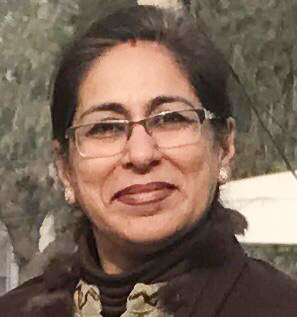
Dr. Meera D. Ansal
Address: Dean, College of Fisheries, Guru Angad Dev Veterinary and Animal Sciences University, Ludhiana
Email: deancof@gadvasu.in, fisheriescof@gmail.com
Call:+91-161-2414061, 2414053
Brief Introduction
Dr. Meera D. Ansal, Head, Department of Aquaculture, College of Fisheries, GADVASU joined as Dean of College of Fisheries on 15th September, 2020. After completing M.Sc. and Ph.D. in Zoology (Specialization: Fish & Fisheries) from Punjab Agricultural University (PAU), she joined as Assistant Professor (Fisheries) in 1999 in Institute of Agriculture, Regional Centre of PAU at Gurdaspur. She has made significant contribution in teaching, research, extension and institutional development. She has guided 11 M.F.Sc./Ph.D students and taught more than 20 UG/PG courses. Under ICAR’s prestigious Niche Area of Excellence Project (2010-2015), she played an instrumental role in aquaculture development in inland salt affected waste areas of south west districts of the State and was conferred with 'Best Success Story' award by the Indian Ecological Society. She is now working to develop ‘Climate Smart Aquaculture Technologies’ viz., diversification involving intercropping with high value species, growth promoting & immuno-stimulating herbal supplements and brood stock management for enhanced aquaculture productivity, without any additional pressure on already depleting multiple use water/land resources.
Recently, she earned an R&D project entitled “Establishment of Capacity Building Resource Centre for Intensive Aquaculture Technologies in Punjab- Recirculatory and Biofloc Aquaculture Systems” with 100% funding of 1.39 crores under PMMSY Center Sector Scheme (CSS) of Department of Fisheries (DoF), Ministry of Fisheries, Animal Husbandry and Dairying (MoFAHD), GOI, to promote intensive aquaculture technologies in the region. With 12 R&D projects and more than 200 publications including research papers, review articles, manuals, books, booklets, pamphlets and extension articles, to her credit, Dr. Meera has also been conferred with ‘Honorary Fellowship' of the Indian Ecological Society.
Former Dean
| Sr. No. | Name | Duration on the post | Date of Retirement | Photograph |
|---|---|---|---|---|
| 1. | Dr. Kamaldeep Kaur | 23-04-2008 to 31-12-2010 | 31-12-2010 | 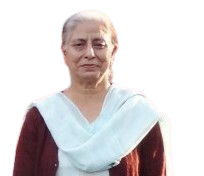 |
| 2. | Dr. Asha Dhawan | 12-01-2011 to 30-11-2017 | 30-11-2017 | 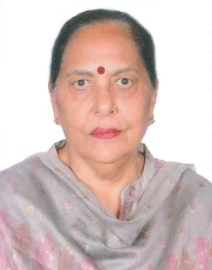 |
| 3. | Dr. Anil Kumar Puniya | 01-12-2017 to 08-01-2018 | 08-01-2018 | 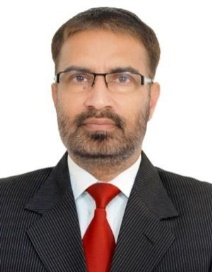 |
| 4. | Dr. Kulbir Singh Sandhu | 09-01-2018 to 14-09-2020 | 14-09-2020 | 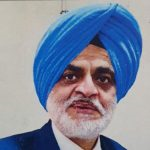 |
Facilities
- Smart Class Rooms well equipped with advanced audio-visual aids for quality education delivery system
- Lecture Hall - Capacity-100
- Committee Room
- College Library
- Laboratories well equipped with high-tech facilities for quality teaching and research.
- UG Practical lab
- Water Quality Lab
- Aquaculture Nutrition Lab
- Microscopy Lab
- Fisheries Resource Management Lab
- Aquatic Animal Health Management Lab
- Cell Culture Lab
- Aquatic Toxicology Lab
- Bioinformatics Cell
- Microbiology and Virology Lab (BSL-2 Facility)
- Fish Engineering Lab
- Fish Processing Technology Lab
- Other Facilties
- Fisheries Museum
- Aqua-House
- PG Student Chambers – 02
- Student Recreational Facility
- Faculty Recreational Facility
- Farm facilties- Adequate farm facilities for teaching ("STUDENT READY PROGRAM"- Experiential Learning and Skill Development), research, demonstration and capacity building at "Instructional cum Research Farm" spread over an area of 6 hectare
- Experimental Culture Pond - Nursery, rearing and stocking
- Demonstration Culture Pond- Semi-intensive Carp Polyculture Pond, Pangas Catfish Culture Pond, Integrated Fish cum Duck Fish farming Pond, Overwintering Pond, Brood stock Ponds, Polyhouse Ponds (Overwintering Facility
- Hatcheries - Circular Chinese Hatchery, Indoor Catfish/Murrel Hatchery, Portable Carp hatchery, Ornamental Fish Hatchery cum Aquarium House
- Different aquaculture Systems/Units -
- Recirculatory Aquaculture System
- Biofloc Aquaculture System
- Automated Aquaponics System
- Flow through System
- Green house
- Feed Mill with Extruder
- Duck Hatchery
- Live Food Culture Unit
- Quarantine Facility
- Azolla Culture Unit
- Waste Water Bioremediation Unit
- Vermicomposting Unit
- Herbal Garden
- Experiential Learning (EL) Modules
- Aquafarming
- Ornamental Fish Culture, Breeding and Seed production
- Fish Processing Technology
- Aquaculture Information Centre - Committee Room, Farmer Library, Technology Exhibition Room and Pantry
- Other Farm Facilities- Feed Stores, Field Stores, FRP Pools and aquaria
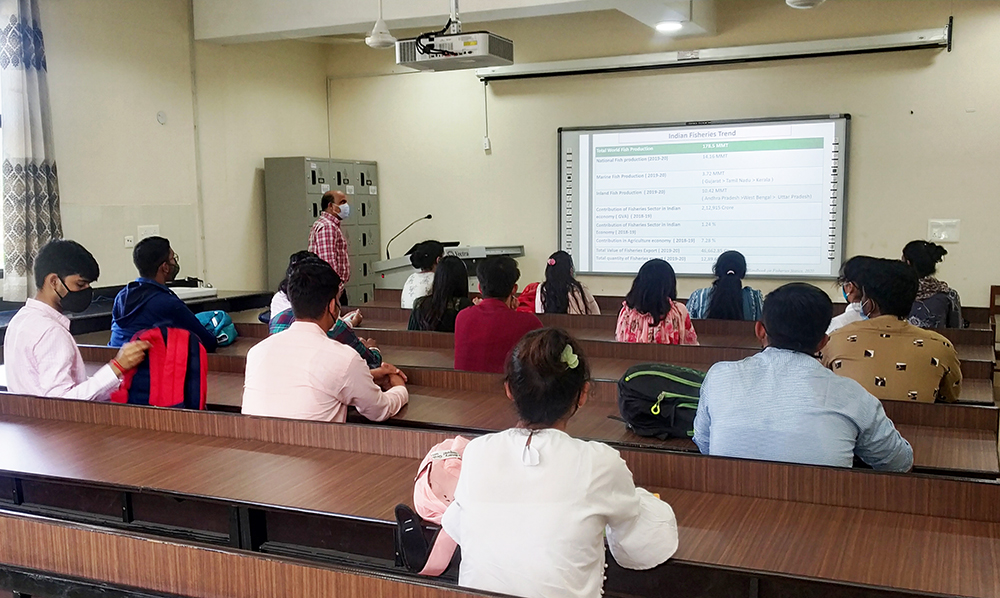 |
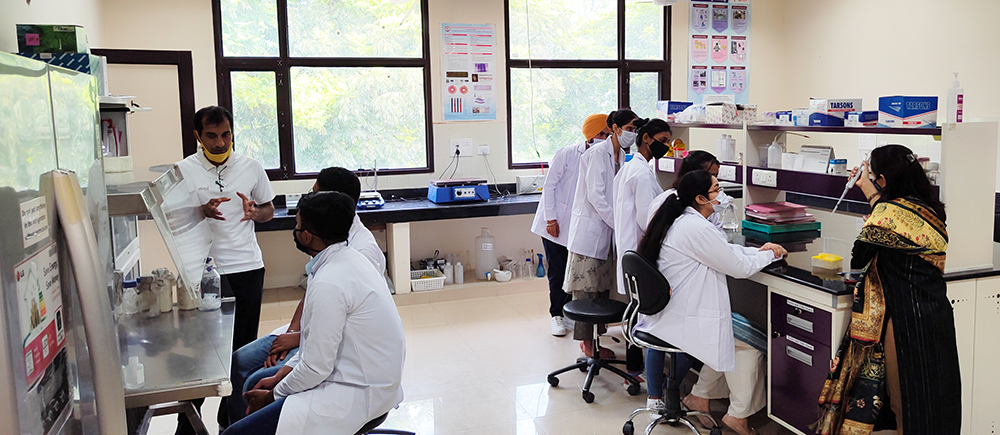 |
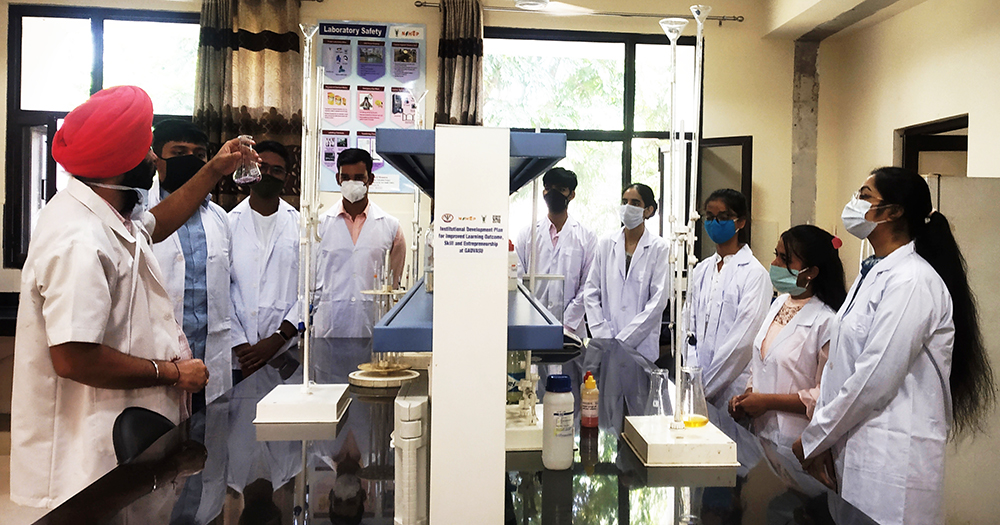 |
|
Smart Class Rooms |
Aquatic Animal Health Management Lab |
Water Quality Lab |
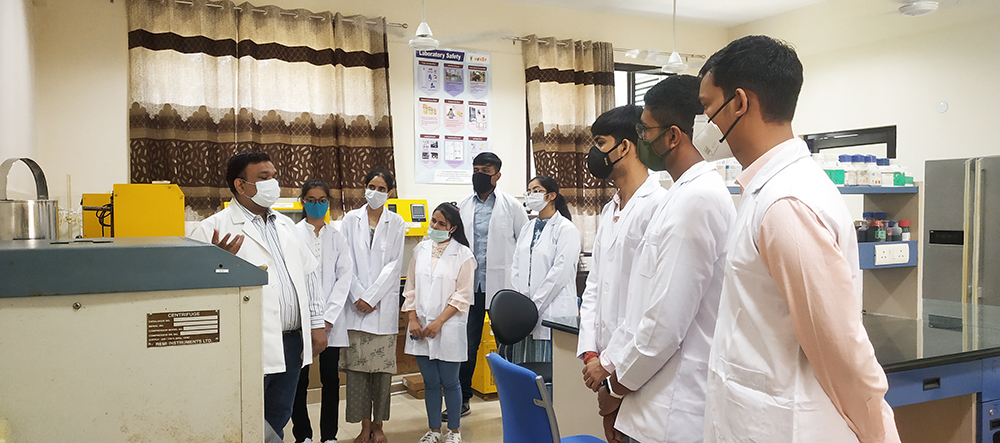 |
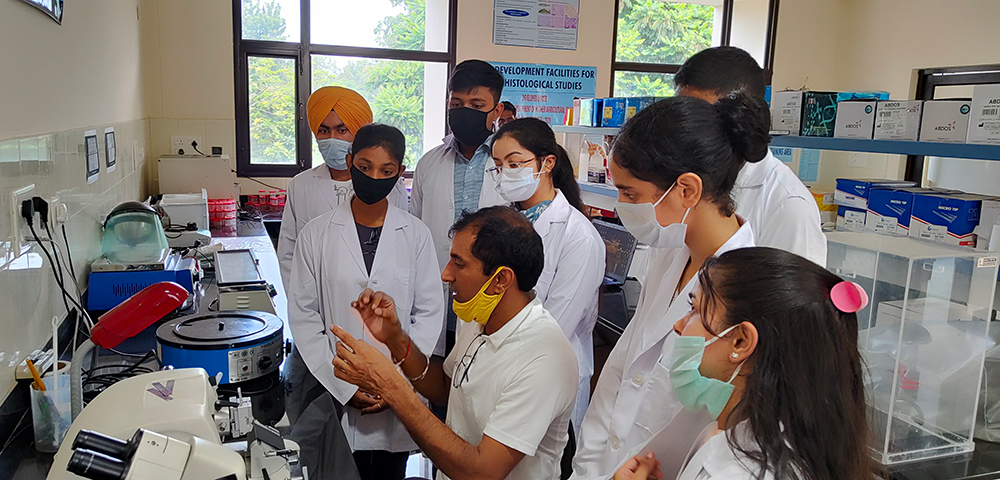 |
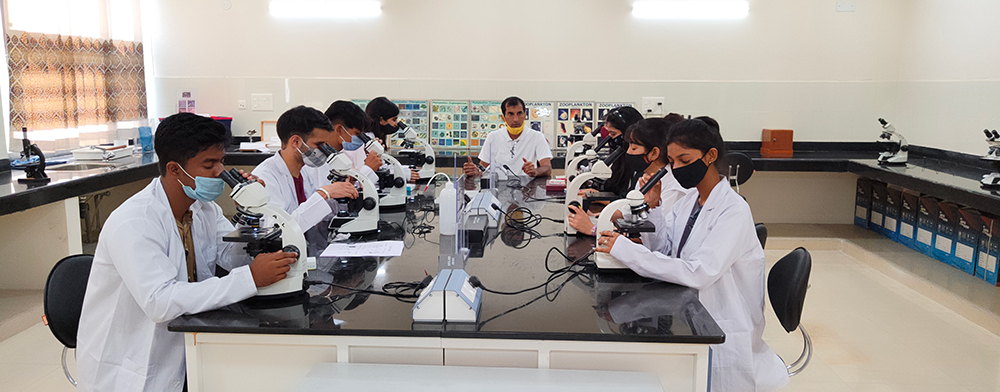 |
|
Aquaculture Nutrition Lab |
Aquatic Toxicology Lab |
Microscopy Lab |
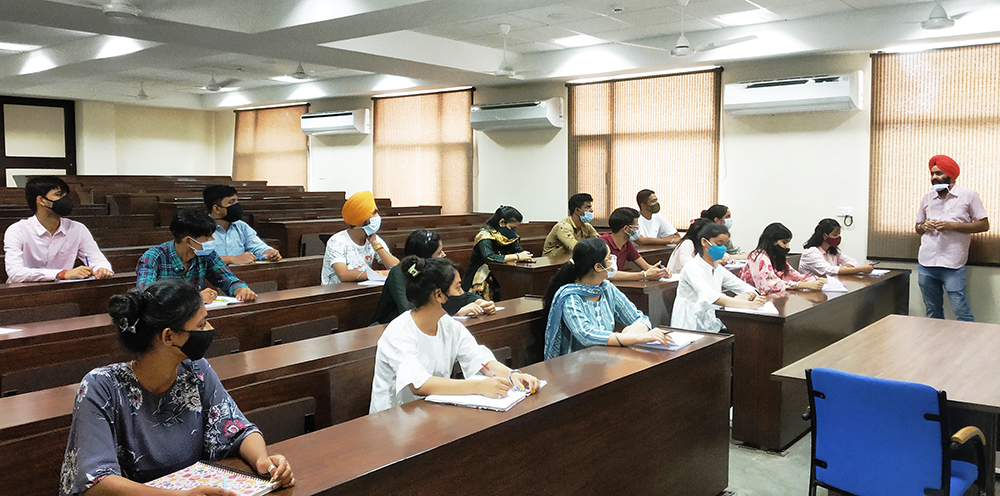 |
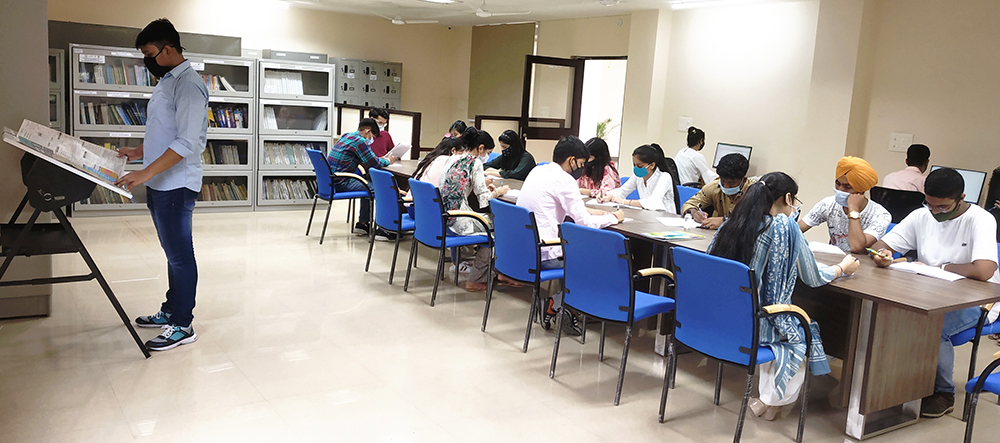 |
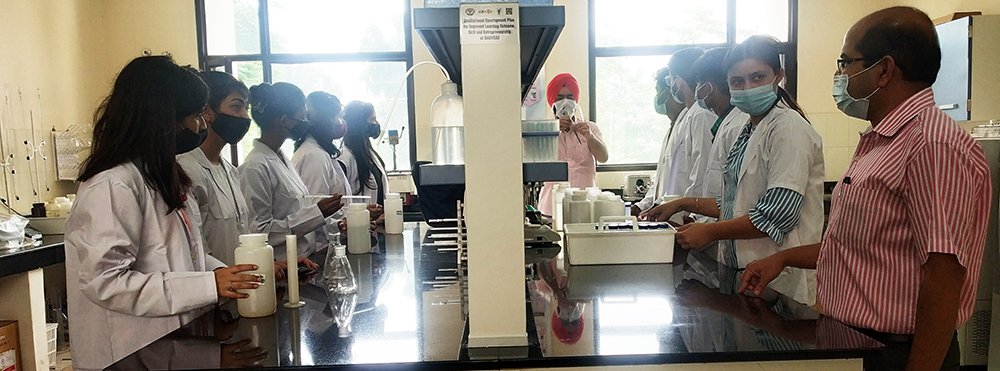 |
| Seminar Room | College Library |
Fisheries Resource Management Lab |
Faculty Detail
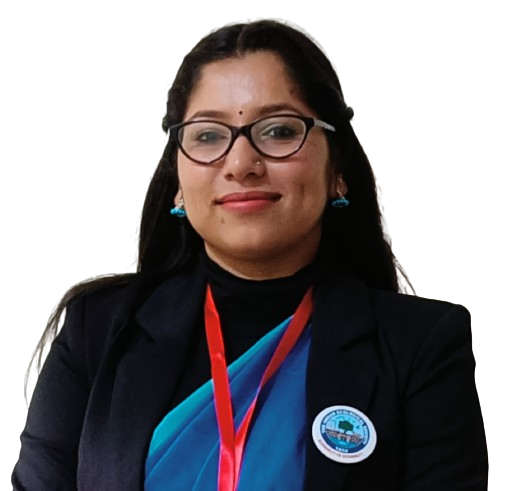
Dr. Sarbjeet Kaur
Designation : Assistant Professor (Fisheries)
Contact Address : Department of Fisheries Resource Management, College of Fisheries, Guru Angad Dev Veterinary and Animal Sciences University, Ludhiana, Punjab 141004
Telephone : 0161-2414061,
Mobile : +91 7508493119
Email : dr.sarbjeet4@gmail.com, sarbjeetkaur@gadvasu.in
Academic Credentials
- Graduation: 2010-14, College of Fisheries, Ludhiana
- Post-graduation: 2014-16, College of Fisheries, Ludhiana
- Doctor of Philosophy: 2016-20, College of Fisheries, Ludhiana
Teaching appointments
- Teaching UG and PG courses of Fisheries Resource Management (Taxonomy of Finfish, Inland Fisheries, Anatomy and Biology of Finfish, Physiology of Finfish and Shellfish, Application of Fisheries Models in Stock Assessment), Aquatic Environment Management (Coastal Zone Management, Limnology), Fisheries Extension Education, Information & Communication Technology, Fisheries Business Management and Entrepreneurship development, Navigation and Seamanship.
Other appointments
- In-charge – Water Quality Lab (Old Building of COF)
Area of research
- I have worked on one of the most fragile ecosystem i.e. River Sutlej in Punjab, a major source of capture fisheries in the Northern India, which is sustaining a great diversity of flora and fauna and also a source of livelihood for riparian population. My area of research interest includes ecological assessment of natural aquatic fisheries resources, monitoring of water quality, plankton diversity, pollution studies with special reference to heavy metal analysis, biological studies of freshwater fishes, fish stock assessment and database generation for framing conservation strategies as well as policy making to preserve the natural fisheries resources
Research honours awards
- Qualified ASRB-ICAR NET
- University Gold Medal Award, Guru Angad Dev Veterinary and Animal Sciences University, Ludhiana
- Video Interviewer Award 2018, Society of Fisheries and Life Sciences, College of Fisheries, Mangalore, Karnataka, India
- Best Oral Presentation Award for the presentation entitled “Study of factors influencing fish consumption patterns in Punjab (India)” in IESFAC-2023, Indian Ecological Society
- Junior Scientist Award, by Society of Fisheries & Life Sciences
- Young Scientist Award, Chronicle of Aquatic Science
No of publications
| Research: 14 | Extension: 06 | Books/Books Chapters: 02 | Manuals: NIL |
|---|
Publication
- Kaur, R., Tewari, G., Kaur, S. & Kumar, J. (2023). Study of factors influencing fish consumption pattern in Punjab (India). Indian Journal of Ecology, 50(4), 1184-87. NAAS:- 5.79
- Pandey, A., Singh, K., & Kaur, S. (2023). Impacts of COVID-19 on integrated fish farmers of Punjab: A case study. The Pharma Innovation Journal, 12(3), 1035-1039. NAAS – 5.23
- Kaur, S. & Singh, P. Physicochemical Profile of River Sutlej – A Comprehensive Study. Water, (under review). Impact – 3.4
- Kaur, S. & Singh, P. (2022). Biology of few commercially important fish species of river Sutlej, Punjab, India. Journal of Experimental Zoology India, 25, 937-44. NAAS – 5.25
- Kaur, S., Singh, P. & Singh, A. (2022). Biochemical composition of few commercially important food fishes of River Sutlej, India. Indian Journal of Ecology, 49(4), 1510-1516. NAAS:- 5.79
- Kaur, S. & Datta, S.N. (2021). Improvising Indian Fishing Technology: Modernization, Impacts and Strategies for Sustainable Fisheries. Journal of Experimental Zoology India, 24(2), 1071-76. NAAS – 5.25
- Kaur, S. & Singh, P. (2020). An insight on the plankton population of river Sutlej along its course in Punjab, India. Journal of Experimental Zoology India, 23(2), 1651-60. NAAS – 5.51
- Kaur, S., Singh, P. & Bedi, J.S. (2019). Analysis of heavy metals in water, sediment and selected fishes of river Sutlej, Punjab, India. Journal of Environmental Biology, 40, 322-327. NAAS – 6.73
- Kaur, S., Singh, P. & Hassan, S.S. (2018). Studies on Gonado-somatic index (GSI) of selected fishes of River Sutlej, Punjab. Journal of Entomology and Zoology Studies, 6(2), 1274-79. NAAS - 5.53
- Kaur, S. & Singh, P. (2017). Studies on plankton diversity of River Sutlej, Punjab. Journal of Entomology and Zoology Studies, 5(6), 620-628. NAAS - 5.53
